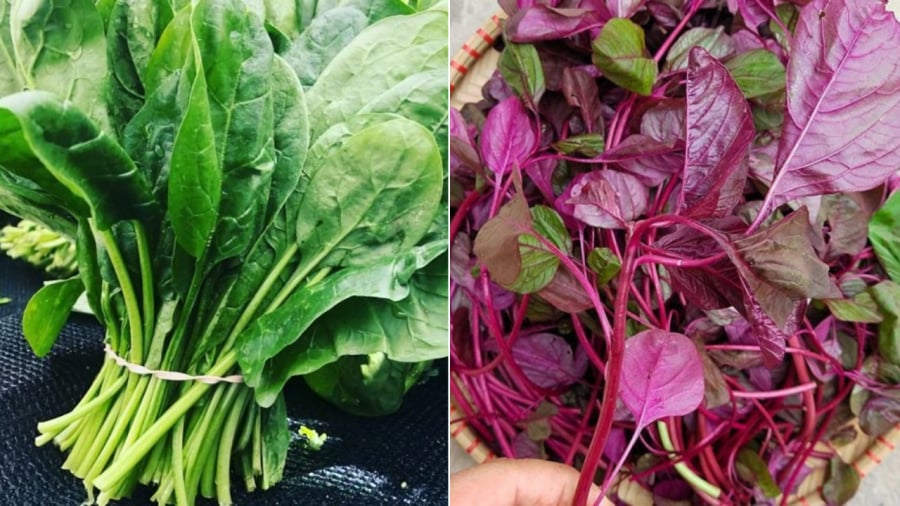Vegetables are an essential food group, providing the body with necessary fiber, vitamins, and minerals. These nutrients support the immune system, promote healthy bones, and help prevent chronic illnesses. Fiber found in vegetables aids in maintaining a healthy digestive system and fosters the growth of beneficial gut bacteria, preventing constipation.
However, it is important to note that consuming large quantities of vegetables is not always beneficial. Some vegetables contain high levels of oxalic acid (or oxalate), which can be harmful to the kidneys and increase the risk of kidney stones. Individuals with an elevated risk of kidney-related issues should be particularly mindful of their intake of these vegetables.
## 5 Nutritious Vegetables that May Contribute to Kidney Stones and Kidney Failure if Consumed in Excess:
### Cruciferous Vegetables:
For healthy individuals, oxalate is an important compound, and any excess is excreted through urine. However, for those with reduced kidney function or a history of kidney stones, a diet rich in oxalate can lead to a buildup of this substance in the body, resulting in kidney stones. Additionally, elevated oxalate levels are associated with an increased risk of chronic kidney disease, high blood pressure, diabetes, and cardiovascular disease. Thus, individuals with kidney issues should limit their consumption of oxalate-rich vegetables, including cruciferous vegetables like spinach. While these vegetables are nutrient-dense, they tend to have high oxalate levels. For instance, 123 grams of cooked spinach contains up to 755 mg of oxalate. It is advisable to opt for cruciferous vegetables with lower oxalate content, such as curly kale, Chinese cabbage, or lettuce, and even then, consumption should be in moderate quantities.
### Amaranth:
Amaranth, or amaranthus, is a nutrient-rich vegetable, particularly known for its high levels of vitamin A and antioxidants such as zeaxanthin, lutein, and beta-carotene, which boost immunity and eye health. However, amaranth also falls into the category of vegetables with a high oxalate content. Every 100 grams of this vegetable can contain up to 229 mg of oxalate. Individuals with kidney problems or those at risk of developing kidney issues should refrain from consuming excessive amounts of amaranth to prevent oxalate buildup and reduce the risk of kidney-related complications.

### Water Spinach:
Water spinach, or morning glory, is a popular leafy green vegetable often found in home-cooked meals. It is versatile and can be eaten raw, in salads, or cooked by boiling, stir-frying, and more. Water spinach is affordable and readily available, offering a good source of vitamins and potassium, among other essential nutrients. However, it is important to note that every 100 grams of water spinach contains approximately 691 mg of oxalic acid. This vegetable should not be consumed in large quantities, and to reduce the level of oxalic acid, it is recommended to blanch the vegetable in boiling water before cooking.
### Bitter Gourd:
Bitter gourd, or bitter melon, is a cooling food often used in home cooking. Yet, many are unaware that it contains high levels of oxalic acid—approximately 459 mg per 100 grams. Excessive and frequent consumption of bitter gourd can negatively impact individuals with kidney issues, increasing the risk of kidney stones and compromising kidney function.
### Wax Gourd:
Wax gourd, also known as winter melon or ash gourd, offers various health benefits, including weight loss support, blood sugar regulation, and bone health improvement. However, it is important to note that wax gourd has a relatively high oxalate content, with approximately 57 mg of oxalate per 120 grams. Individuals with kidney problems should exercise caution when consuming this vegetable to avoid exacerbating their condition.
In conclusion, while vegetables form an essential part of a healthy diet, it is crucial to be mindful of those with high oxalate content, such as cruciferous vegetables, water spinach, amaranth, bitter gourd, and wax gourd. Individuals with kidney issues, including kidney stones and reduced kidney function, should limit their consumption of these vegetables to maintain their health and prevent further complications.
































